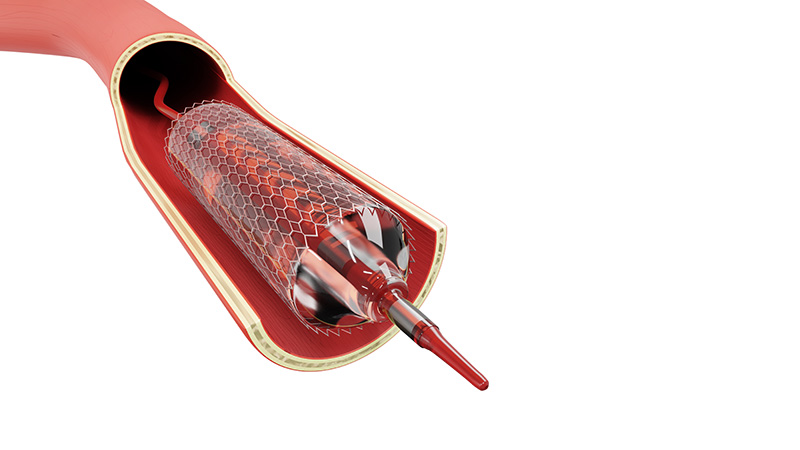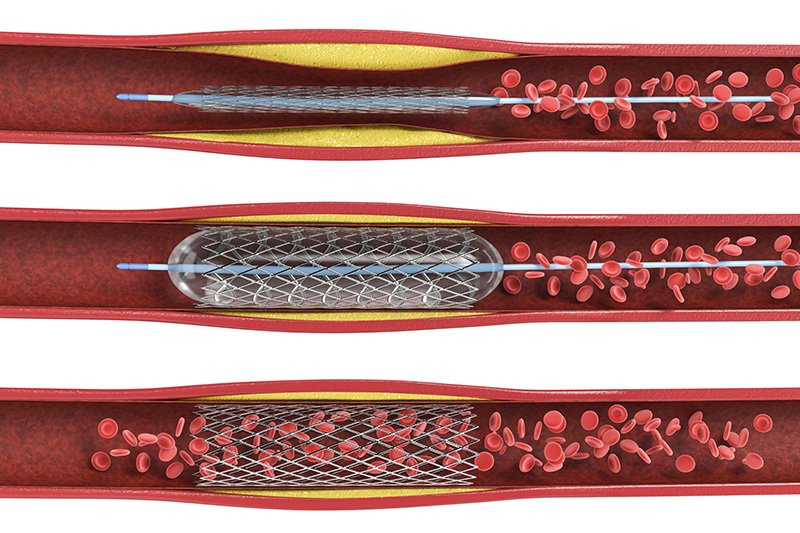Complex Percutaneous Coronary Intervention (PCI) – An effective treatment for complex coronary artery disease (CAD)

Coronary artery disease (CAD) is one of the most common types of heart disease worldwide. CAD happens when the arteries that supply blood to heart muscle become hardened and narrowed, resulting in decreased blood flow to the heart. A complete blockage can cause a heart attack. Treatment of CAD usually involves percutaneous coronary intervention (PCI) and coronary artery bypass surgery using a vessel from another part of the body to bypass the blocked coronary arteries. In certain cases, the superior advantage of PCI is a faster recovery time, compared to bypass surgery.
Get to know CAD
CAD develops when coronary arteries, the major blood vessels that supply the heart become damaged or blocked. A buildup of atherosclerotic plaques (fatty deposits) can narrow these arteries, resulting in reduced blood flow to the heart. Eventually, the lack of blood flow to the heart may damage the heart muscle, causing myocardial infarction –the irreversible death of heart muscle. Symptoms often include chest pain (angina), and shortness of breath, especially when the heart is beating hard, such as during exercise or exertion. Since CAD often progresses over decades, symptoms might not arise until a significant blockage develops. A complete blockage can cause a heart attack.
Simple PCI and CAD treatment
Percutaneous Coronary Intervention (PCI) is a non-surgical procedure to treat CAD. During PCI procedure, a catheter (a thin flexible tube) is inserted into the blood vessels either in the groin or in the arm. Using a special type of X-ray called fluoroscopy, the catheter is threaded through the blood vessels into the heart. Combined with the use of X-ray, radiographic contrast media are then injected in order to determine the abnormality of blood vessels in both left and right sides of the heart. The coronary artery which is narrowed or blocked due to atherosclerotic plaques will be detected. After reaching the narrowed artery, when the tip is in place, a balloon tip covered with a stent is inflated. The balloon tip compresses the plaque against the artery walls and expands the stent. Once the plaque is compressed and the stent is in place, the balloon is deflated and withdrawn. A stent is often left in the artery to help keeping the artery open.
Complex PCI in complex CAD treatment
In some cases, atherosclerotic plaques in the coronary artery might be present with severe calcification (severely calcified plaque), causing balloon becomes more difficult to be deflated, resulting in unsuccessful PCI. In such complex PAD, rotablation procedure is required. Rotablation is the process of plaque and calcified deposits drilling. During rotablation, a special catheter is guided to the point of the narrowing in the coronary artery. The tip spins at a high speed and grinds away the plaque on the artery walls. The microscopic particles are washed away in the bloodstream. It is considered complex procedure that might increase risks of complications. However, it significantly increases the chance of successful PCI treatment.
In addition, the term complex PCI is also applied to patients presenting with complex coronary lesions, such as extensive burden or total occlusion. These complex conditions potentially lower the success rates of PCI treatment. Due to the advancements in technology and advanced interventional technique, a non-surgical procedure to treat complex CAD has tremendously shown improved treatment outcomes with enhanced accuracy and safety. More importantly, other contributing factors to achieve the best possible outcome and minimize the chance of recurrence must be kept under control. These include taking medicines as instructed regularly, controlling all risk factors, staying active and fit as well as maintaining a healthy weight.
Bangkok Heart Hospital is truly committed to provide a holistic care in cardiology, covering accurate diagnosis, effective treatment and full recovery. Highly experienced and well-train multidisciplinary team acts as the key of success, especially in cardiovascular diseases with high complexity, such as chronic CAD and CAD with severely calcified plaques.



